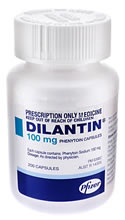Top Class Actions’s website and social media posts use affiliate links. If you make a purchase using such links, we may receive a commission, but it will not result in any additional charges to you. Please review our Affiliate Link Disclosure for more information.

One epilepsy drug that has been linked to Stevens Johnson Syndrome (SJS) is Dilantin, generic phenytoin. Dilantin, manufactured by Pfizer Inc., was approved by the U.S. Food & Drug Administration (FDA) on Nov. 20, 2001. Phenytoin sodium, the main ingredient in Dilantin, was approved by the FDA in 1953. It is prescribed to treat temporal lobe seizures and grand mal seizures. Dilantin is also prescribed to to treat and prevent seizures in patients after major brain and spinal surgery, as well.
SJS starts out with flu-like symptoms such as fever, sore throat, and headache. The skin rash may initially start out as hives, but blisters will begin to develop on the skin and mucous membranes, especially the mouth, nose and eyes. It usually culminates in the shedding of the skin–which means that the top layer of the skin has died. Eating, sleeping and urinating can all become difficult.
A more severe form of SJS is toxic epidermal necrolysis (TEN) — in which 100 percent of the epidermis can separate from the body, as opposed to SJS, in which 30 percent of the skin is affected. TEN also has a much higher fatality rate.
Monitoring for flu-like symptoms and a rash on the extremities is critical, and so too is knowing what groups are most at risk for Stevens-Johnson Syndrome side effects.
According to a recent study, there are a number of factors that increase the likelihood of such a diagnosis. Specifically, patients with HIV have a thousand-fold increase in the odds, most likely because HIV patients have a weakened immune system. The elderly and women are also at a significantly greater risk.
Of course, all of that is compounded by drugs in the anticonvulsive class. Dilantin SJS side effects are a big enough problem that the medication carries a black box warning, but many other drugs cited in Stevens-Johnson Syndrome class action lawsuits do not. Those can include some types of antibiotics and over-the-counter pain relievers, such as Zithromax and Tylenol.
In general, Dilantin Stevens Johnson Syndrome lawsuits are filed individually by each plaintiff and are not class actions.
Do YOU have a legal claim? Fill out the form on this page now for a free, immediate, and confidential case evaluation. The attorneys who work with Top Class Actions will contact you if you qualify to let you know if an individual lawsuit or class action lawsuit is best for you. Hurry — statutes of limitations may apply.
ATTORNEY ADVERTISING
Top Class Actions is a Proud Member of the American Bar Association
LEGAL INFORMATION IS NOT LEGAL ADVICE
Top Class Actions Legal Statement
©2008 – 2024 Top Class Actions® LLC
Various Trademarks held by their respective owners
This website is not intended for viewing or usage by European Union citizens.
Get Help – It’s Free
Help for Victims of Stevens Johnson Syndrome
If you or a loved one were diagnosed with Stevens Johnson Syndrome (SJS) or toxic epidermal necrolysis (TEN) after taking a prescribed or over-the-counter medication, you may be eligible to take legal action against the drug’s manufacturer. Filing an SJS lawsuit or class action lawsuit may help you obtain compensation for medical bills, pain and suffering, and other damages. Obtain a free and confidential review of your case by filling out the form below.
An attorney will contact you if you qualify to discuss the details of your potential case at no charge to you.
Oops! We could not locate your form.












